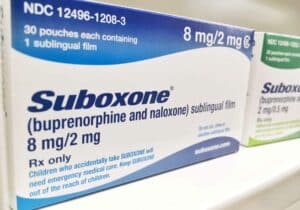Adderall abuse is an escalating concern among adolescents and young adults. Initially developed to treat Attention Deficit Hyperactivity Disorder (ADHD), Adderall has found its way into the hands of many teens and college students who use it recreationally or as a performance enhancer, often without an ADHD diagnosis or understanding of its risks.
Data from the 2015 Monitoring the Future survey highlighted that 7.5% of high school seniors reported using Adderall that year, with its recreational use being even more prevalent among college students. Stimulants such as Adderall and Ritalin rank among the top abused drugs on university campuses, sharing the list with alcohol, marijuana, and MDMA (Ecstasy). A striking study involving 10,000 college attendees nationwide revealed that over 60% of students with an ADHD medication prescription admitted to distributing it to peers lacking prescriptions.
Moreover, there’s a significant gap in awareness about the potential dangers associated with Adderall use. A survey among undergraduate students indicated a mere 2% perceived the drug’s use as “very dangerous.” Additional research by the Center for Drug Use and HIV Research underscores a worrying trend: many youths do not recognize Adderall as an amphetamine, leaving them oblivious to its potentially fatal side effects.
What is Adderall?
Adderall is a prescription stimulant commonly used to treat attention deficit hyperactivity disorder (ADHD) and narcolepsy. Composed of dextroamphetamine and levoamphetamine, it works by increasing the levels of norepinephrine and dopamine in the brain, enhancing concentration, comprehension, and energy. Despite being a stimulant, Adderall produces a paradoxical calming effect on its users, enabling them to focus better, regulate their emotions, and complete tasks more efficiently.
Why is Adderall Used By Teens and Adolescents?
Adderall has become popular among teens and young adults for its ability to:
- Sharpen focus
- Ensure timely completion of academic tasks
- Enhance study efficiency
- Provide the energy and concentration needed for academic success
This is especially true for college students who face the challenge of balancing demanding academic schedules with social engagements. The pressures of achieving high grades, managing part-time jobs, engaging in campus activities, and securing internships can be overwhelming. Adderall is sought after for its perceived ability to boost focus and energy, facilitating both academic achievement and an active social life. According to a 2014 study published in Drug and Alcohol Dependence, a significant majority (73%) of college students surveyed reported using stimulants like Adderall and Ritalin to stay alert and energetic. Furthermore, research by the University of Michigan indicates a rising trend in Adderall use among high school seniors since 2009, highlighting its widespread appeal among younger demographics.
What Causes Adderall Addiction?
Adderall addiction stems from its ability to imitate the brain’s natural neurotransmitters, such as dopamine, epinephrine (adrenaline), and norepinephrine. Dopamine generates feelings of reward and pleasure, epinephrine activates the body’s fight or flight response, and norepinephrine enhances the duration of these responses, making them more intense. Classified as a Schedule II drug by the Drug Enforcement Administration, Adderall shares this category with other substances like heroin, cocaine, and methamphetamine, recognized for their high abuse potential and risk of leading to severe physical and psychological dependence.
With regular, prolonged use, individuals can develop a tolerance to Adderall, necessitating higher doses to achieve the same effects, which can spiral into addiction. The emergence of tolerance coupled with the discomfort of Adderall withdrawal symptoms underscores addiction’s presence.
Adderall Addiction Signs and Symptoms
Recognizing addiction involves identifying various behavioral and physical changes:
- Usage of Adderall not prescribed to the individual
- Exceeding the recommended dosage
- Altering the drug’s form for consumption (injecting, snorting, or smoking)
- Combining Adderall with other substances
- Utilizing Adderall for euphoria or academic performance enhancement
- Experiencing strong cravings for Adderall
- Persistent use despite negative consequences on relationships, employment, or finances
- Engaging in risky behaviors
- Showing signs of agitation, anxiety, or paranoia
- Decreased appetite and subsequent weight loss
- Experiencing an irregular heartbeat
If these behaviors or symptoms are present in someone you know, it’s important to seek help immediately. The risks associated with Adderall addiction are significant and can profoundly impact an individual’s health and well-being. If your teen is struggling with Adderall addiction in Chattanooga, TN, call Iris Wellness Group at 423-401-9630 today to begin your adolescent addiction treatment.
Adderall Side Effects in Teens
Adderall, a prescription medication, is accompanied by numerous potential side effects. Parents should be vigilant for signs that may include:
- Fluctuating moods
- Dryness in the mouth
- Abdominal discomfort
- Increased irritability
- Feelings of paranoia
- Elevated temperature
- Vision disturbances
- Difficulty sleeping
- Frequent headaches
- Episodes of panic
- Aggressive behavior
- Manifestations of psychosis
- Elevated blood pressure
- Difficulty with bowel movements
- Raspy voice
- Accelerated heart rate
- Experiences of anxiety
- Symptoms of depression
- Thoughts of self-harm or suicide
Monitoring for these symptoms can help in recognizing the impact of Adderall use on a teenager’s health and well-being.
Adderall’s Impact on Teen Mental Health
Prolonged Adderall usage leads to a decrease in natural dopamine production, resulting in depressive states and an inability to experience pleasure without the drug. These effects intensify with continuous use. Moreover, extended consumption of Adderall can induce psychosis and symptoms akin to schizophrenia, such as paranoid delusions and hallucinations, as highlighted in Molecular Psychiatry. Prescription stimulants, in general, share these psychological impacts.
Withdrawal from or chronic use of amphetamine stimulants can also precipitate anxiety and panic attacks, with the FDA cautioning about possible adverse psychiatric effects on medication labels. These symptoms can be more severe in individuals with a pre-existing mental health condition, like bipolar disorder or schizophrenia, underscoring the complex interplay between Adderall use and mental health.
Risks of Adderall Overdose in Teens
An overdose on Adderall, akin to overdosing on substances like cocaine or methamphetamine, poses severe and potentially fatal risks. Signs of an Adderall overdose include:
- Intense panic attacks
- Dizziness or vertigo
- Significant confusion
- Rapid breathing
- Visual or auditory hallucinations
- Irregular heartbeat
- Unconsciousness
- Falling into a coma
For teens, who might be more susceptible to experimenting with dosages beyond their therapeutic needs, recognizing these signs is crucial. An Adderall overdose demands urgent medical intervention to prevent critical outcomes.
Reevaluating Stimulant Impact on Educational Outcomes
Studies indicate that ADHD medications such as Adderall and Ritalin don’t enhance cognitive abilities or learning in individuals without ADHD. Equally, there’s no conclusive proof that these drugs boost academic outcomes for those diagnosed with ADHD.
Data suggests that students misusing prescription stimulants tend to:
- Miss classes more often
- Dedicate less time to studying
- Achieve lower academic grades compared to non-users
- Encounter heart issues at a young age
- Engage in heavy alcohol consumption
- Experiment with illicit substances
- Use marijuana
- Combine stimulants with other drugs for recreational purposes
These findings debunk the myth that Adderall contributes to academic success. Instead, its misuse is associated with lower educational attainment and a propensity towards substance abuse.
How Does Adderall Addiction Treatment Help My Teen?
Adderall addiction treatment can be a lifeline for teens, especially those who are high achievers using the drug to excel academically and professionally. These teens may be achieving great grades but at the risk of developing a dependence on Adderall, which can lead to significant physical and psychological challenges. At Iris Wellness Group, we understand the pressure to perform and offer comprehensive treatment programs to support your teen through Adderall withdrawal and teach them natural focus and study strategies. Our Teen Adderall treatment approach includes:
- Outpatient Detox
- Intensive Outpatient Programs (IOP)
- Partial Hospitalization Program (PHP)
- Outpatient Rehab
All of our levels of care designed to nurture recovery in a supportive and engaging environment. Our programs not only address addiction but also equip teens with leadership skills, encouraging them to inspire their peers positively. High achievement should not compromise health. Let us guide your teen toward sustainable success without reliance on Adderall. Reach out to us at 423-401-9630 to discover more about our teen addiction treatment in Chattanooga, TN.










